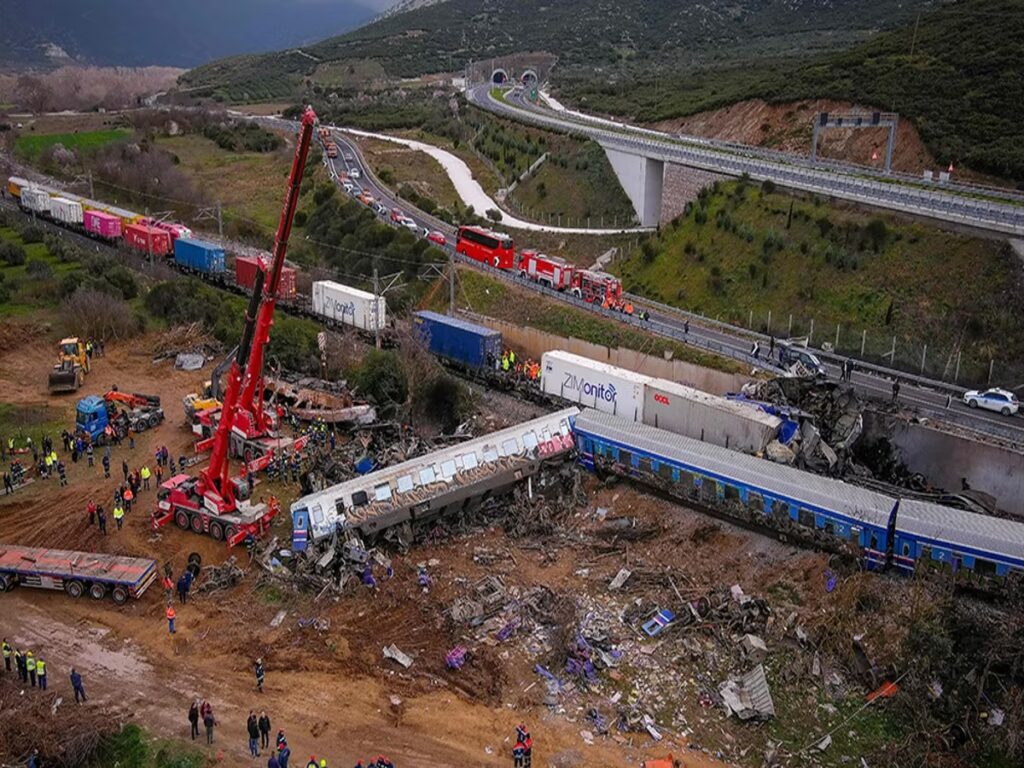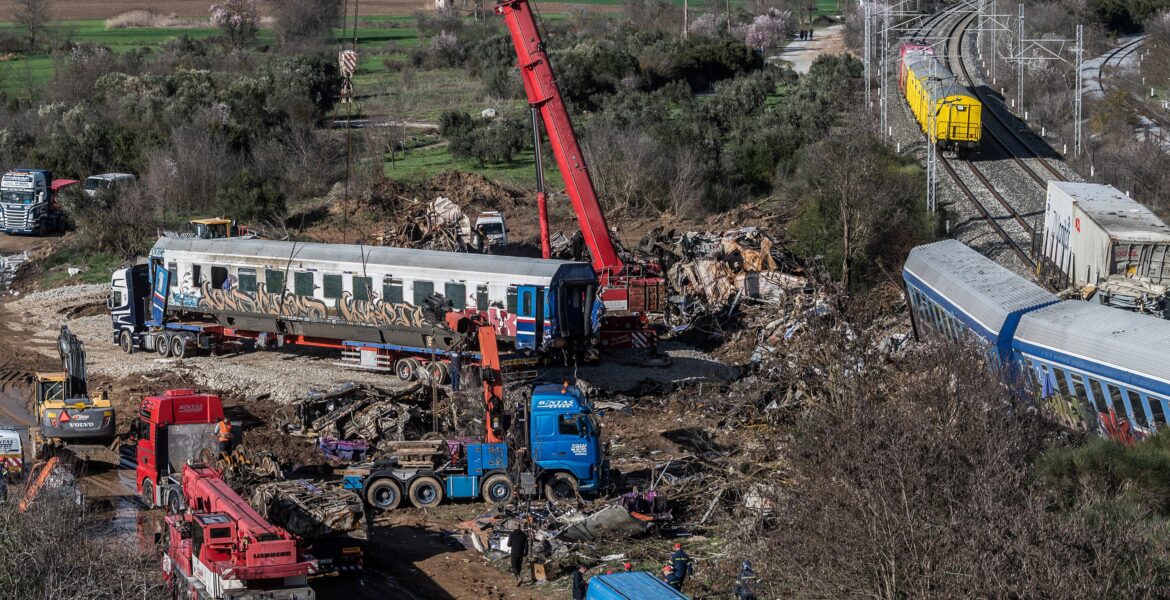Two doctors who were responsible for granting a sick leave to the inspecting supervisor of the Larissa train station after a deadly train collision have been suspended, the head of the 5th Health Authority Region Fotis Seretis said on Tuesday.
Seretis told the press after testifying that the two doctors at the General Hospital of Volos in central Greece will also be investigated by health services.
The two doctors signed off on a month-long sick leave for the inspecting supervisor on March 7, after a passenger and a freight train collided near Tempi in central Greece causing the death of 57 people.
The stationmaster himself directly responsible for the accident has been detained after testifying before an investigating magistrate.
Seretis said that of the injured passengers hospitalized, 7 people are still in intensive care units in three hospitals.
On Tuesday, PASOK-Movement for Change party leader Nikos Androulakis said that one of the two doctors would be removed from the party’s ballot in the Magnesia prefecture, where he was a candidate for the upcoming national elections.
The decision about Dr. Nikos Haftouras was made after the conclusions of an internal inquiry concerning the one-month’s sick leave given to the supervisor were released.
Greek Prime Minister Kyriakos Mitsotakis has asked for forgiveness from the families of the 57 victims of this week’s train crash.
In a Facebook message, Mr Mitsotakis said that “in the Greece of 2023… two trains heading in different directions cannot run on the same line and no-one notice”.
Protests have continued for days.
Clashes with police were reported on Sunday as thousands joined a demonstration in the capital Athens.
Police estimated 12,000 people attended the protest.
They said seven officers were hurt and five arrests were made, the AFP news agency reports.
Some demonstrators set fire to rubbish bins and threw petrol bombs. Police responded by firing tear gas and stun grenades, clearing the central Syntagma Square of the protesters within a few minutes.
The protesters also reportedly released hundreds of black balloons into the sky in memory of the dead, with some holding signs reading “Down with killer governments”.
On the night of 28 February, a passenger train and a freight train that were travelling in opposite directions ended up on the same track.
The first four carriages of the passenger train were derailed, and the first two caught fire and were almost completely destroyed.
The train crash has been widely attributed to human error.
A 59-year-old station master in Larissa, who was charged with manslaughter by negligence, appeared in court on Sunday and has been taken into custody.
His lawyer Stefanos Pantzartzidis said the station master had admitted to having a share of responsibility in the accident. He faces between 10 years and life in jail if convicted.
But many in Greece see the crash as an accident that had been waiting to happen, and the railway workers’ union blamed successive governments’ “disrespect” towards Greek railways for leading to this “tragic result”.

A government minister told the BBC that the lack of funding was the direct result of the strict terms of international bailouts imposed after the 2010 debt crisis.
Union members were joined by residents of Athens and Thessaloniki in taking to the streets throughout the past week, shocked by the scale of the disaster.

The protests were also attended by many students – several of the passengers on board one of the trains were students in their 20s returning to Thessaloniki after a long weekend celebrating Greek Orthodox Lent.
“The rail network looked problematic, with worn down, badly paid staff,” Nikos Savva, a medical student from Cyprus, told AFP news agency.
Train drivers in Greece have said there have been long-running problems with the electronic systems that are supposed to warn them of danger ahead.

The transport minister, Kostas Karamanlis, also resigned as a “sign of respect” for the people who had died. Mr Karamanlis he was taking responsibility for the government’s failure to modernise the country’s railways in the three-and-a-half years it had been in power.
READ MORE: Train collision: Two sisters came from Germany for a funeral and died in Tempi.


